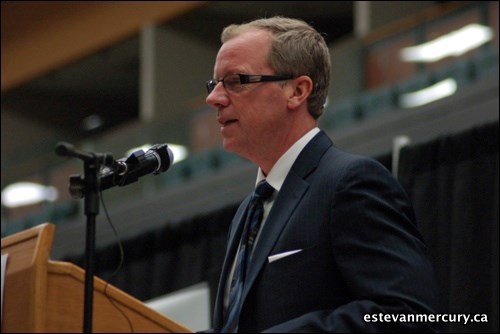��
��
The recent announcement by Catherine McKenna, the federal minister for environment and climate change, to end traditional coal-fired power generation by 2030 has drawn the ire of the provincial government.
Premier Brad Wall issued a press release after McKenna’s revelation, in which he criticized the federal government. The premier was already at odds with Prime Minister Justin Trudeau over Trudeau’s plan to impose a national carbon tax.
Wall claimed that at the First Ministers' meeting in Vancouver in March, Trudeau agreed to work together with the provinces to develop a pan-Canadian approach to climate change that would be discussed and finalized at the next first ministers’ meeting in the fall, which is slated for early December.
��“The federal government has now violated that commitment for a second time by making its second major policy announcement in advance of the first ministers' meeting in December – the announcement last month of a national carbon tax and now today's announcement of an accelerated phase out of coal-fired electrical generation,” Wall said.
He believes these actions have severely undermined the December meeting and have exposed what he called Trudeau's disingenuous commitment to federal-provincial collaboration.
Saskatchewan will be evaluating both the environmental and the economic impact on the province of the federal government’s latest announcement.��
��“We will continue to strongly oppose any attempt to impose a federal carbon tax on Saskatchewan and will not support any agreement at the December meeting unless the proposed federal carbon tax is withdrawn,” said Wall.
McKenna noted there are four provinces that still have coal-fired generation: Saskatchewan, Alberta, Nova Scotia and New Brunswick.
There is expected to be some leeway for those provinces if they aren’t able to remove coal from their power generation fleet.
McKenna also stressed that provinces will be able to keep coal as an energy source if they switch to carbon capture and storage (CCS) from conventional coal generation.
During the press conference when she made the announcement, McKenna lauded the CCS project that opened at the Boundary Dam Power Station’s Unit 3 in 2014.
The Liberals want to see 90 per cent of Canada’s energy come from clean or renewable resources by 2030.



.png;w=120;h=80;mode=crop)
